 |
|
|
| View this newsletter online |
 |
Research School for Socio-Economic and
Natural Sciences of the Environment |
| SENSE e-News |
|
|
  |
Newsletter September 2022
07 September 2022 |
|
 |
| • |
Paper on citizen science on impact assessment wins Journal of Sustainability Science award ›› |
| • |
Joyeeta Gupta wins Piers Sellers Prize 2022 ›› |
| • |
VENI grant for Jouke Dykstra (WUR) for the electrochemical cleaning of drinking water ›› |
| • |
Anna Huang: A way to the Top ›› |
| • |
Martijn Duineveld: Voor een leefbare planeet moet het poldermodel de prullenbak in ›› |
| • |
Environmental and Resource Economics - Module: Climate Economics, 3-7 October 2022 ›› |
| • |
A1 SENSE Introductory Course, 27-28 October 2022 ›› |
| • |
Overview of PhD / postdoc courses September-October 2022 ›› |
| • |
Overview of recently announced PhD / postdoc courses ›› |
| • |
Annual IHE PhD symposium 2022: “Realising the SDGs: Innovative water solutions to achieve resilience in an uncertain world” – all SENSE PhD candidates invited, 13-14 October 2022 ›› |
| • |
Symposium: Satellite Imagery Classification of man-made structures using Deep Learning/Machine Learning, 28 October 2022 ›› |
| • |
Overview of upcoming events September-October ›› |
| • |
Overview of PhD graduations September 2022 ›› |
| • |
Call SENSE Course Development (deadline: 31 October 2022) ›› |
| • |
Biodiversa+ Call on "Improved transnational monitoring of biodiversity and ecosystem change for science and society" (deadline: early November 2022) ›› |
| • |
GAIA Masters Student Paper Award (deadline: 28 November 2022) ›› |
| • |
Overview job vacancies ›› |
|
|
|
 |
 |
 |
| Editorial |
 |
| Welcome back! |
The September e-News usually offers the opportunity to welcome you all back to the normality of our daily (academic) lives. I hesitate if I can do that this year, because to what normality would I welcome your? And is that the (new) normality we want and need?
We live in a strange era of multiple crises, such as war, severe floodings in a.o. Pakistan, severe draught in large parts of Europe, wildfires, failing harvests, huge energy prices, inflation, a nitrogen crisis, angry farmers, Covid, bird flue, and a refugee crisis that might even be increased by climate change related disasters in the future.
Not all of these crises are in the field of the SENSE domain, but looking closely, most if not all of them are related to it or influence it.
The saying is, that crisis is chance. So to stay on the positive side, we could say that this is a time of many great chances. These times offer scientists a chance to prove their relevance in finding solutions. But also the chance to find connection with societal actors, because without them, no solution can ever be implemented. To solve the nitrogen crisis, we are nowhere without our farmers, to take the example closest at hand this summer.
In the heated debate of today, with many expressing strong opinions, the challenge may be not only to speak up about the knowledge science generates, but also to listen and stay connected as a society. I wish all of us the inspiration and fresh energy to contribute to both knowlegde and dialogue.
Marjolijn Dannenburg, Communication officer |
|
|
 |
| SENSE News |
 |
| Paper on citizen science on impact assessment wins Journal of Sustainability Science award |
| There’s a lot of buzz around citizen science for sustainability. Engaging scores of people who collect and share data to contribute to scientific projects is a popular method. But what’s the impact? That’s a question often ignored, or answered with assumptions and speculations. An IHE Delft-led paper that presents the first systematic review of how citizen science impact can be captured recently received an Honorable Mention Award from the journal Sustainability Science. |
|
|
| Joyeeta Gupta wins Piers Sellers Prize 2022 |
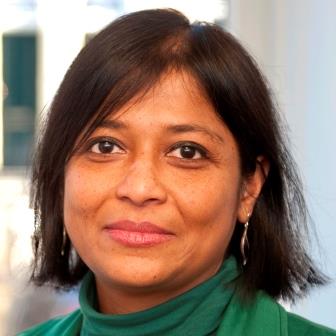 Professor Joyeeta Gupta wins the prize for her world leading contribution to solution focused climate research. The award is bestowed annually in the name of Piers Sellers, the former astronaut, climate scientist and Leeds alumnus, by the Priestley International Centre for Climate at the University of Leeds. Professor Joyeeta Gupta wins the prize for her world leading contribution to solution focused climate research. The award is bestowed annually in the name of Piers Sellers, the former astronaut, climate scientist and Leeds alumnus, by the Priestley International Centre for Climate at the University of Leeds. |
|
|
| VENI grant for Jouke Dykstra (WUR) for the electrochemical cleaning of drinking water |
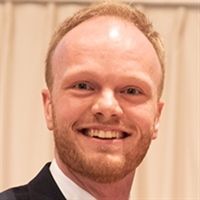 With his project on electrochemical ‘water polishing’, ETE assistant professor Jouke Dykstra has been awarded a VENI grant in the NWO talent scheme Veni, Vidi, Vici. This grant is aimed for excellent scientists that have successfully finished their PhD within the last three years. His project, Removal of toxic anthropogenic solutes in drinking water treatment by electrochemical polishing, aims to clean drinking water from low-level contaminants, that are still present after the conventional treatment technologies. The grant offers a personal budget of € 280.00000 for four years of work. Dykstra: ‘We will use the grant to develop the technology as well as a simulation model to further fine tune the knowhow and methodology.’ With his project on electrochemical ‘water polishing’, ETE assistant professor Jouke Dykstra has been awarded a VENI grant in the NWO talent scheme Veni, Vidi, Vici. This grant is aimed for excellent scientists that have successfully finished their PhD within the last three years. His project, Removal of toxic anthropogenic solutes in drinking water treatment by electrochemical polishing, aims to clean drinking water from low-level contaminants, that are still present after the conventional treatment technologies. The grant offers a personal budget of € 280.00000 for four years of work. Dykstra: ‘We will use the grant to develop the technology as well as a simulation model to further fine tune the knowhow and methodology.’ |
|
|
| SENSE blogs |
 |
| Anna Huang: A way to the Top |
 A way to the Top is my blog as a PhD candidate in Environmental Toxicology. My name is Anna Huang, PhD candidate at Wageningen University on the project "Mechanisms of toxicity of neonicotinoid insecticides towards aquatic arthropod species". I started my PhD project in September 2018. This blog is a reflection and summary of my PhD project, by analogy with climbing, you will see how I climbed through my entire PhD project to the end, the top. A way to the Top is my blog as a PhD candidate in Environmental Toxicology. My name is Anna Huang, PhD candidate at Wageningen University on the project "Mechanisms of toxicity of neonicotinoid insecticides towards aquatic arthropod species". I started my PhD project in September 2018. This blog is a reflection and summary of my PhD project, by analogy with climbing, you will see how I climbed through my entire PhD project to the end, the top. In 2018, just before I made up my mind to come to the Netherlands, I got a great piece of advice from a wise friend: "There is no such thing as a right choice, just make a choice and try to make it right." With this advice, I started my "trying" journey, making one choice and trying to get it right, if not, then another choice and trying to get it right. “Trying”, I believe is also a principle of science because one of the properties of science is that it is unknown, and we have no guarantee that we are heading in the right direction. Now, time flies to 2022, I will be defending in November, and this PhD "trying" journey is approaching an end. Looking back, some successes, some failures, although some "trying" was painful, all worth it. In this blog, I am writing about the research findings from my PhD project, which consists of four separate research blogs. My colleagues and I have done amazing jobs. My goal for this blog is to make ecological risk assessments, especially the risk assessment of pesticides in aquatic systems, more accessible for more people. You will find our interesting scientific questions such as (1) why are some species sensitive to pesticides and show delayed toxic effects, while others are not? (2) Do organisms of different sizes, sexes, and ages living in the same population have different susceptibility to pesticides? If so, what could be the reasons? (3) Some pesticides have been banned because they are not good for the environment, but some new alternatives have emerged. How safe are these new pesticides for the environment? (4) To protect our environment, we also need to be aware that our environment is changing, and warming is one of the most worrying changes. Will the toxicity of chemicals be affected by warming? If so, what could be the reasons? If you are interested, please check this link https://annahuangaew.blogspot.com/. If you have any questions, please feel free to contact me. Anna Huang, PhD candidate |
|
|
| Martijn Duineveld: Voor een leefbare planeet moet het poldermodel de prullenbak in |
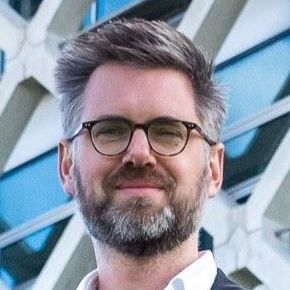 Moordende overstromingen in Nederland, België en Duitsland; een dorp in Canada dat binnen twintig minuten van de kaart gebrand is; extreme hittegolven in Pakistan en India. We leven in een tijd die door steeds meer mensen wordt gezien als een kruispunt voor de mensheid. Met polderen sparen we misschien op de korte termijn de kool en de geit. Maar de gevolgen voor de lange termijn zijn desastreus. De geit blijft immers een grote bron van methaan en stikstof en het is de vraag of de kool nog groeit als de aarde door gif en kunstmest uitgeput raakt. Er moeten snelle en drastische keuzes gemaakt worden die op de korte termijn grote consequenties hebben voor burgers en bedrijven. In dit essay zetten we uiteen waarom het poldermodel voor de klimaat- en biodiversiteitscrisis de prullenbak in kan en concluderen dat het alternatief voor de ogenschijnlijke inclusiviteit van het poldermodel meer democratische controle betekent. Moordende overstromingen in Nederland, België en Duitsland; een dorp in Canada dat binnen twintig minuten van de kaart gebrand is; extreme hittegolven in Pakistan en India. We leven in een tijd die door steeds meer mensen wordt gezien als een kruispunt voor de mensheid. Met polderen sparen we misschien op de korte termijn de kool en de geit. Maar de gevolgen voor de lange termijn zijn desastreus. De geit blijft immers een grote bron van methaan en stikstof en het is de vraag of de kool nog groeit als de aarde door gif en kunstmest uitgeput raakt. Er moeten snelle en drastische keuzes gemaakt worden die op de korte termijn grote consequenties hebben voor burgers en bedrijven. In dit essay zetten we uiteen waarom het poldermodel voor de klimaat- en biodiversiteitscrisis de prullenbak in kan en concluderen dat het alternatief voor de ogenschijnlijke inclusiviteit van het poldermodel meer democratische controle betekent. |
|
|
 |
|
| Do you want to have your own blog on the SENSE website, or do you want to write a single blog post? Please contact marjolijn.dannenburg@wur.nl. |
|
|
|
 |
 |
|
 |
 |
| Upcoming courses and discussion groups |
 |
| Environmental and Resource Economics - Module: Climate Economics, 3-7 October 2022 |
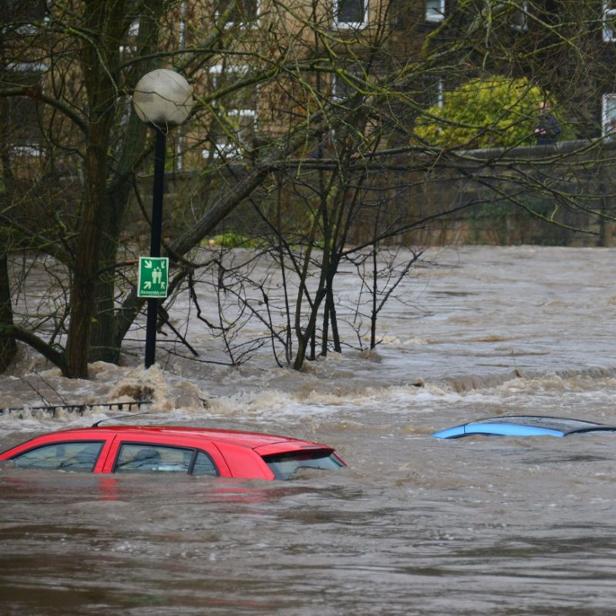 The course “Environmental and Resource Economics” is offered as different independent modules. The course “Environmental and Resource Economics” is offered as different independent modules.
Upcoming modules cover circular economy, climate economics, and behavioural environmental economics.What are the economic consequences of climate change? By how much should these consequences be reduced by climate change adaptation and mitigation policies? Which economic instruments are effective and efficient in stimulating a low-carbon economy and how do these instruments function? The module “Climate Economics” picks up these questions. |
|
|
| A1 SENSE Introductory Course, 27-28 October 2022 |
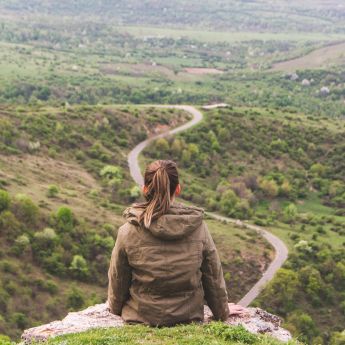 This course brings together PhD candidates that have the ambition to work on environmental issues, and who have just started their journey within SENSE.During the course, you will discuss the need for interdisciplinary research and start to think about what role you would like to play as a scientist in solving environmental issues. The course will also be part introduction to personal leadership, exploring what is important to you, and hence talking about how to tackle any potential challenges you may face along the way. And you will meet other PhD candidates with which you will share a lot of the same experiences with. This course brings together PhD candidates that have the ambition to work on environmental issues, and who have just started their journey within SENSE.During the course, you will discuss the need for interdisciplinary research and start to think about what role you would like to play as a scientist in solving environmental issues. The course will also be part introduction to personal leadership, exploring what is important to you, and hence talking about how to tackle any potential challenges you may face along the way. And you will meet other PhD candidates with which you will share a lot of the same experiences with. |
|
|
| Overview of PhD / postdoc courses September-October 2022 |
- The Choice: Un-box your PhD process & take charge of your performance
8 September - 3 November 2022, Wageningen
- From Business Theory to Practical Application (NEW)
8 September - 12 October 2022
- Transformative research for sustainability challenges
19-30 September 2022, Wageningen or Utrecht
- Agent-based modelling with NetLogo
19-26 September 2022, University of Göttingen, Germany
- International TD Summer School - Transdisciplinary methods and tools for dealing with sustainability and land use conflicts
25 September - 1 October 2022, Spain
- Polder2C's Late Summer School: Fieldwork for flood resilience
26-30 September 2022, Belgium
- Python for Geospatial Hydrological Applications
26-30 September 2022, IHE Delft
- From topic to proposal: Getting started (NEW)
27 September - 21 October 2022, Wageningen
- Africa Online Summer School (NEW)
2-12 October 2022, online
- Environmental and Resource Economics - Module: Climate Economics
3-7 October 2022, Wageningen
- MOOC: Co-creating sustainable cities
4 October 2022 - 3 April 2023, online
- Theoretical Ecology: Bifurcations in dynamical systems
10-14 October 2022, Ede
- Risk Assessment
10-14 October 2022, Wageningen
- BCF Grant Application Course
12-13 October 2022, online
- Ethics for Social Sciences Research
13 October 2022, Wageningen
- Genome Assembly (NEW)
13-14 October 2022, Wageningen
- Life Sciences Data Integration Challenge
24-28 October 2022, Wageningen
- RMarkdown
31 October - 3 November 2022, Wageningen
- Advances Short Course on "Where there is little data: how to estimate design variables in poorly gauged basins
31 October - 11 November 2022, Delft
- Advanced Course Bioprocess Design
31 October - 4 November 2022, Delft
|
|
|
| Overview of recently announced PhD / postdoc courses |
|
In case you are interested in either participating or teaching a course that is currently not in the programme, please do not hesitate and contact us with your suggestions. |
|
|
|
 |
 |
|
 |
 |
| Upcoming Events |
 |
| Annual IHE PhD symposium 2022: “Realising the SDGs: Innovative water solutions to achieve resilience in an uncertain world” – all SENSE PhD candidates invited, 13-14 October 2022 |
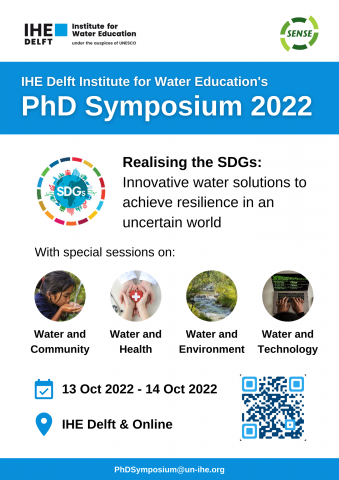 |
|
|
| Symposium: Satellite Imagery Classification of man-made structures using Deep Learning/Machine Learning, 28 October 2022 |
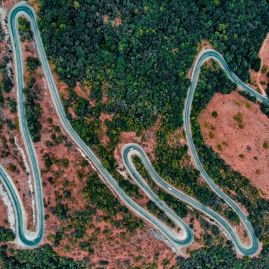 A symposium on man-made structures classification from satellite imagery using Deep Learning/Machine Learning. A symposium on man-made structures classification from satellite imagery using Deep Learning/Machine Learning.
The program (see attachment) will consist of two parts. In the first part, there are two main keynote presentations on Scaling-up challenges and Explainable AI for machine learning-based remote sensing activities. Each main presentation will be followed by a 20-minutes period for discussion/questions.
During the second part, you are invited to present your PhD/Postdoc research. It will be followed by time for discussions and some drinks.
The main goal of the symposium will be to share ideas and broaden the network of early-career researchers working on the combination of satellite data and deep learning/machine learning in an inspiring blend of interactive presentations and discussions. |
|
|
| Overview of upcoming events September-October 2022 |
- IWA World Water Congress & Exhibition: Water for smart liveable cities
11-15 September 2022, Denmark
- European Water Technology Week 2022
19-22 September 2022
- Annual Research Conference 2022 - How to turn green in the European way?
20-21 September 2022, Spain and webstream
- Sprintij Forum
21-23 September 2022
- TOPX SUMMIT 2022: A career development & empowerment summit for ambitious women in Life Sciences
22-23 September 2022, Oss
- European Research and Innovation Days
28-29 September 2022, online
- Carl Folke live event at Naturalis: Resilience & Biodiversity
28 September 2022, Leiden
- ECORISK2050: Final Conference: Environmental risks of chemicals in the future
29 September 2022, Wageningen
- Symposium on Environmental Crime
30 September 2022, Wageningen
- NSCB Fall Meeting: Structural Bioinformatics Beyond AlphaFold2
10 October 2022, Belgium
- Transdisciplinary research - a guide
18 October 2022
- Annual Conference on Earth System governance: "Governing accelerated transitions: justice, creativity, and power in a transforming world"
21-23 October 2022
- 6th WGNE workshop on systematic errors in weather and climate models
31 October - 4 November 2022
|
|
|
| Overview of recently announced events |
| No other than mentioned above |
|
|
| Upcoming PhD graduations |
 |
| Overview of PhD graduations September 2022 |
- Joël Foramitti
Agent-based modeling of climate policy
6 September 2022, VU University Amsterdam, Institute for Environmental Studies (IVM)
- Yaping Lin
Deep learning for semantic segmentation of airborne laser scanning point clouds
7 September 2022, University of Twente, Earth Observation Science
- Antoine Karengera
Sensing hydrophilic contaminants: transcriptional response of Caenorhabditis elegans as biosensor far water quality
7 September 2022, Wageningen University, Marine Animal Ecology
- Nesru Koroso
Urbanization, urban land use efficiency and land policy credibility in Ethiopia
8 September 2022, University of Twente, Urban and Regional Planning and Geo-information Management
- Marthe Wens
Farmers facing drought - Capturing adaptation dynamics in disaster risk models
9 September 2022, VU University Amsterdam, Water and Climate Risk
- Zerihun Anbesa Gurmu
Challenges and prospects to reduce sedimentation in small-scale irrigation schemes in the Great Rift Valley Basin, Ethiopia
20 September 2022, Wageningen University, Water Resource Management
- Bram Droppers
Modelling agricultural production under sustainable water management, climate change and agricultural adaptation
23 September 2022, Wageningen University, Water Systems and Global Change
- Yu Lei
Removal of micropollutants from wastewater treatment plant effluent by constructed wetlands
23 September 2022, Wageningen University, Environmental Technology
- Rúna Magnússon
Greening, Browning or Drowning?
28 September 2022, Wageningen University, Plant Ecology and Nature Conservation
- Jakia Akter
Modelling centuries of geo-morphological development of the Ganges-Brahmaputra-Meghna delta
29 September 2022, IHE Delft, Coastal & Urban Risk & Resilience
- Santiago Botia Bocanegra
Greenhouse gas exchange in the Amazon region Carbon dioxide and methane insights from the Amazon Tall Tower Observatory
30 September 2022, Wageningen University, Meteorology and Air Quality
|
|
|
|
 |
 |
|
 |
 |
| Calls |
 |
| Call SENSE Course Development (deadline: 31 October 2022) |
| To support the development of new courses and the collaboration between members, SENSE allocated an annual fund of 20.000 euros to support course development. Each proposal can apply for a maximum of 4.500 euro. Applications are open to all SENSE member institutes. |
|
|
| Biodiversa+ Call on "Improved transnational monitoring of biodiversity and ecosystem change for science and society" (deadline: early November 2022) |
This call will cover the following three non-exclusive research themes:
1) Innovation and harmonisation of methods and tools for collection and management of biodiversity monitoring data
2) Addressing knowledge gaps on biodiversity status, dynamics, and trends to reverse biodiversity loss
3) Making use of available biodiversity monitoring data
All environments (i.e. terrestrial, inland freshwater including wetlands, and marine) will be eligible. |
|
|
| GAIA Masters Student Paper Award (deadline: 28 November 2022) |
| The international journal GAIA – Ecological Perspectives for Science and Society invites Masters students to participate in the GAIA Masters Student Paper Award. Masters students are encouraged to submit their results from research-based courses or Masters theses in the field of transdisciplinary environmental and sustainability science. Every year, one article will be selected by a jury as the winner of the GAIA Masters Student Paper Award. |
|
|
| Job vacancies |
 |
| Overview of vacancies at SENSE partners |
- Two PhD positions in Technology design and assessment for sorbents-based CH4 and NO2 separation from diluted streams, Utrecht University
Apply before 11 September 2022
- Junior Assistant Professor: Bending the Curve - Biodiversity and Global Change, Utrecht University
Apply before 15 September 2022
- PhD Candidate in Eco-hydrology, IHE Delft
Apply before 15 September 2022
- PhD Nature-based transitions: quantifying soil suitability and water availability for regenerated sandy-soil landscapes, Wageningen University
Apply before 16 September 2022
- Assistant Professor Governance of Sustainability Transformations, Wageningen University
Apply before 19 September 2022
- Fully funded PhD position: Understanding impacts of mountain greening on hydrology from a plant traits and ecological perspective, Utrecht University
Apply before 21 September 2022
- PhD researcher Marine Actors and Governance Process, Wageningen University
Apply before 23 September 2022
- PhD position on hazard assessment of advanced nanomaterials, Wageningen University
Apply before 27 September 2022
- PhD Candidate Data-driven river discharge and coastal sea level change in the North Sea region and the Horn of Africa (position 1), University of Twente
Apply before 29 September 2022
- PhD Candidate Development of an inversion scheme to close the water cycle balance at the watershed level (position 2), University of Twente
Apply before 29 September 2022
- Assistant/Associate Professor in Quantitative methods in natural hazards and disaster risk assessments, Utrecht University
Apply before 2 October 2022
- PhD position in "Water footprint assessment and water allocation modelling", University of Twente
Apply before 15 October 2022
- PhD position in "Valuing water for sustainable, equitable, efficient, and resilient water allocation", University of Twente
Apply before 15 October 2022
|
|
|
| Other vacancies in the SENSE field |
|
|
|
|
| More vacancies |
| During the month new vacancies are regularly posted on the SENSE vacancy page. |
|
|
|
 |
 |
|
 |
|